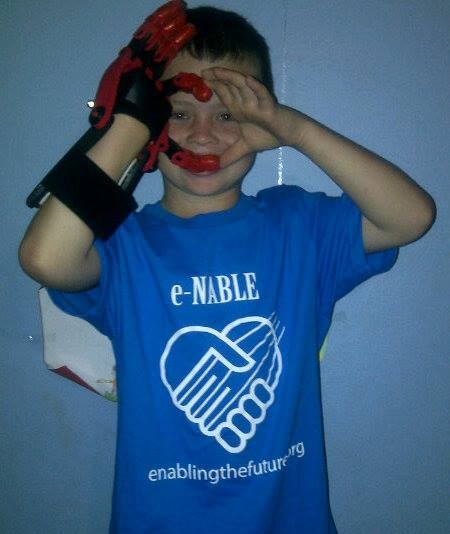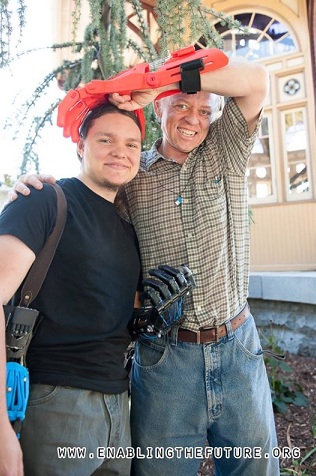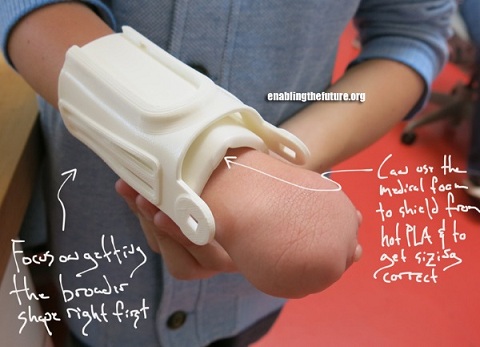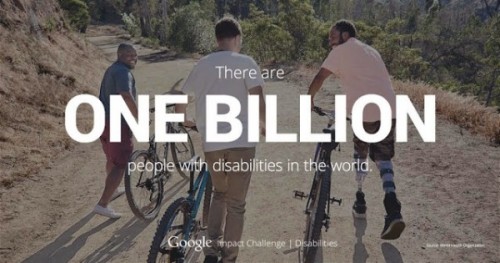When a technology evolves we need to make sure that it is in sync with our needs and having a positive impact in our lives.
Similarly scientists, biotechnologists and many tech-loving 3D printing practitioner used 3D printing technology to bring a change in the lives of the needy ones, like that of the amputees. And as success stories rolled out in the media, soon enough large megacorps started funding on such projects.
Tech giant Google has a recently came to the news with a similar story. Google made announcements expressing its intention of backing non-profit organizations which are using contemporary technologies to help people with disabilities and for that Google invested $20 million on its non-profit division, Google.org.
Google announced on Tuesday that the $20 million grant is a part of its initiative, Google Impact Challenge: Disabilities. According to a blog post,”The Google Impact Challenge: Disabilities will seek out nonprofits and help them find new solutions to some serious “what ifs” for the disabled community.” The blog also states, “We will choose the best of these ideas and help them to scale by investing in their vision, by rallying our people and by mobilizing our resources in support of their missions.”
As a part of the the challenge, Enable Community Foundation was awarded $600,000 grant for its innovative contribution on prostheses using 3D printing technology.
The 3D printed prostheses proved to be the best suitable replacement for the traditionally manufactured ones as they were too expensive and the children would soon have outgrown them. e-NABLE, which deals with the R&D and manufacturing of 3D printed prostheses, has been one of the active communities which brought forward series of affordable as well as customizable 3D printed prostheses.
e-NABLE Foundation President Jon Schull said, “We think the e-NABLE community’s products and practices are a potential model for other ventures that can inspire digital humanitarians to use emerging technologies to develop innovative solutions for underserved populations,” he added, “Google.org has challenged us to test that idea, and given us the resources to do it, even as we continue to serve volunteers and recipients.”
The fund will be used to make further progress through research and development on the various needs of the prostheses community, and at the same time build more open source software, like that of Handomatic. Ivan Owen, one of the directors at Enable Community Foundation, said, “Because we now have unprecedented access to knowledge, to technology, and to fellow problem-solvers, we have new options for developing, sharing, and disseminating new solutions to challenging intractable problems. The e-NABLE community has thrived by using communications and collaboration tools that are breathtakingly powerful, rapidly evolving and virtually free. With Google.org’s direct support, we can do even more.”
Ivan Owen, one of the directors at Enable Community Foundation, said, “Because we now have unprecedented access to knowledge, to technology, and to fellow problem-solvers, we have new options for developing, sharing, and disseminating new solutions to challenging intractable problems. The e-NABLE community has thrived by using communications and collaboration tools that are breathtakingly powerful, rapidly evolving and virtually free. With Google.org’s direct support, we can do even more.” In the past we have seen doctors and biotechnologists used 3D printing to make prosthetic limbs, keeping in mind the requirements of the needed ones. And another talented hard working group of 2nd year students of Kansas University made customized 3D printed prosthetic arms for selective five patients.
In the past we have seen doctors and biotechnologists used 3D printing to make prosthetic limbs, keeping in mind the requirements of the needed ones. And another talented hard working group of 2nd year students of Kansas University made customized 3D printed prosthetic arms for selective five patients.
Image: www.enablingthefuture.com

